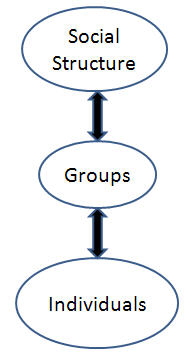by Sarah Michele Ford
The gay marriage debate casts a light on a wide variety of issues that are relevant to the sociology student.
Fundamentally, this is a debate about our values, about the role of religion and government in our society, and about definitions of family. Where you come down on the question of gay marriage depends on how you look at each of these issues.

Photo by Kelly B. Huston (http://www.flickr.com/photos/doxiehaus/3018087812/)
- Proponents of gay marriage frame the issue in terms of equal rights. They argue that to exclude gay couples from the legal benefits of marriage is a violation of civil rights; they argue that allowing religious groups to control what couples may or may not get married violates the separation of church and state.
- Opponents of gay marriage frame the issue in terms of religion and traditional family structures. They argue that within Judeo-Christian tradition, homosexuality is a sin and marriage is defined as a union between one man and one woman. Some also add that marriage is the creation of a family and that a family means parents and their children; since it is biologically impossible for a gay couple to have children (that get their genetic material from those two parents) there’s no reason for them to get married.
And therein lies the challenge. Gay marriage exposes the seams in our society, seams around what constitutes a family and who gets to decide on that definition; seams around the importance of equality and around the role of religion in American culture. All of these conflicts revolve around things that many people hold so dear, it’s no wonder this has become such a divisive issue.
Can the gay marriage debate be resolved in a way that’s satisfying to everyone? Or does one of these sides have to lose the fight?









